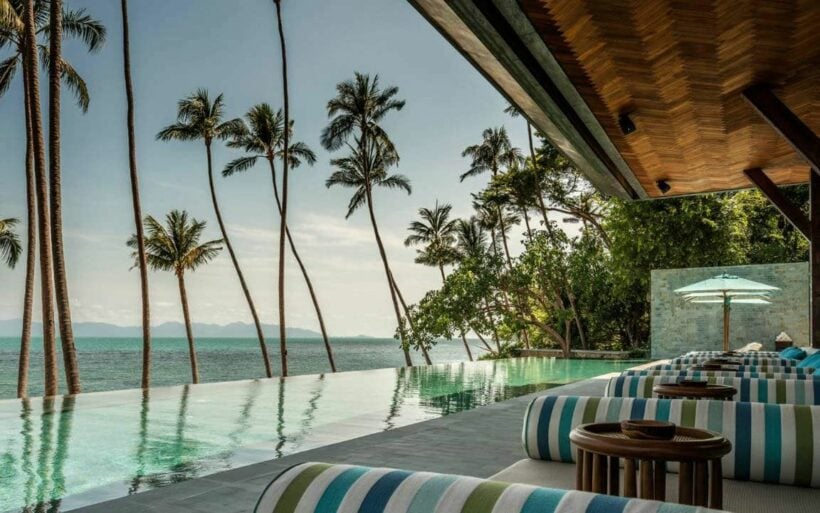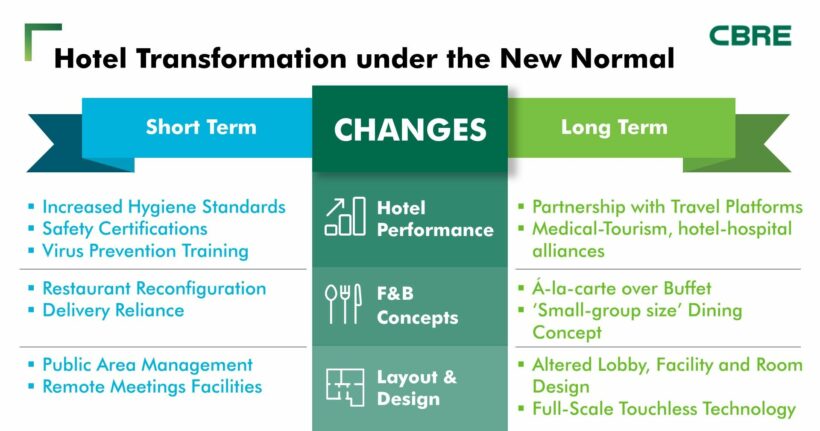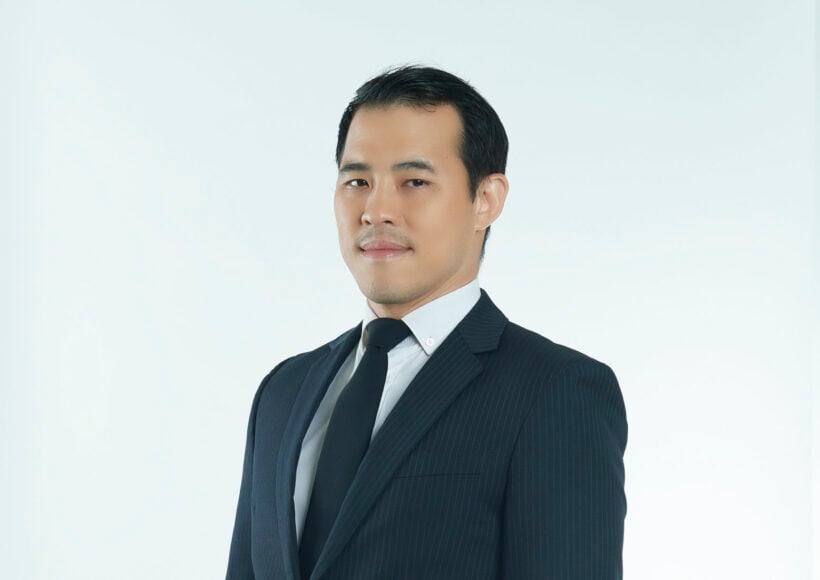The transformation of Thai hotels under the ‘new normal’ – CBRE

The full impact from Covid-19 could be prolonged, even after the actual virus is finally brought under control. CBRE, an international property consultant, expects Thailand’s hotel industry will undergo inevitable changes as part of the ‘new normal’. A new report says there will be an added emphasis on hygiene, a redefined restaurant concept, new partnerships and design alterations in line with the new global Covid era.
Atakawee Choosang, Head of Capital Market – CBRE Hotels, Thailand says that the hospitality sector is now seeing both subtle and substantial changes.
“With a sharp reduction in international visitors, the hotel sector took one of the hardest hits across the real estate industry during Covid-19. We see many hotel developers and owners of large hotels in Thailand, reliant on international inbound, temporarily shutting their respective hotel businesses as they are not able to be profitable even with the current shift towards domestic tourism. Owners across the board are trying to regain guests’ confidence with accredited hygiene standards.”
“The hotel asset type, in some ways should reflect a ‘second home’ on the road either in the short or long term, and while the common public space is easing up on its protocols, hotels will continue to have the highest standard of hygiene and cleanliness possible to build confidence with the guests.”
To improve hotel performance in the short-term, hotel owners in Thailand are focusing on reassuring guests of their virus-free hotels by implementing new safety protocols like Covid-19 control and prevention training for hotel staff following the Ministry of Public Health guidelines, and acquiring a series of ISO certifications and SHA from the Amazing Thailand Safety and Health Administration.

In the long-run, partnerships with travel platforms like travel agencies, tourism offices, airlines and tourist destinations will be crucial for business survival and growth. Medical tourism, wellness-certified hotel, and potential hotel-hospital alliances can play a significant role in recovering the hotel market and become a significant driver in future hotel concepts as Thailand already has, by nature, a strong and welcoming hospitality culture catering to the world’s ageing population.
“With public health at the forefront, Thailand has the potential to solidify its status as one of the front-runners in the medical industry. Thailand is one of the most successful countries in the world to battle the virus outbreak, in a short period of time the infected cases has visually decreased and the number of fatalities are at a minimum. Hotel developers may see this as an opportunity to target medical tourism visitors that, despite the recent slowdown, has been on the rise since 2016.”
In terms of hotel food and beverage, the social-distancing policy has altered the hotel-dining experience, especially in terms of the seating and spatial configuration. The shortage of dine-in customers during the past few months has driven many hotel restaurants to compete with standalone eateries by offering food delivery services to drive additional revenue. Since the lockdown restriction has lifted, the new hotel dine-in experience has adopted additional safety requirements like physical-distancing by table, but also a higher standard of food handling and preparation, and potentially new dining concepts to cater towards smaller group sizes but in higher quantities.
Changes from a hotel development and services standpoint are also in the pipeline for to restore the guests’ confidence, firstly by accommodating essential workers, primarily business executives, government officials and investors, who are among the first groups to be permitted to travel, with new facilities to support remote meetings directly from the hotels with in-room Zoom or similar applications.
“Hotel management will likely continue its common area management… daily disinfection of the lobby, installation of air filtration, temperature scans, and hand sanitisers and alcohol-based sprays.”
“Full-scale touchless technology, digital keys, digital check-in, and potentially ultraviolet and other unobtrusive virus-killing technologies could become the norm at branded and upscale to luxury hotels.”
“Regardless of positioning, hotels will need to strive for a symbiotic balance to support layout usability and a clear, harmonised health and safety protocol standard to be applied to every part of the hotel. It’s all about rebuilding the level of trust.”

PHOTO: Atakawee Choosang, Head of Capital Market – CBRE Hotels, Thailand
Latest Thailand News
Follow The Thaiger on Google News:


























